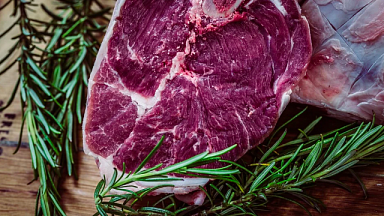An analytical study includes the analysis of the European Union export to China (and other Asian countries) in order to identify changes in the volume and structure of EU freight traffic. During the study, EU countries were grouped according to the principle of the export change and their transport and logistics capabilities. After the embargo had been imposed, the export of the EU countries with access to the sea (Germany, the Netherlands, Denmark, Spain, Italy, Portugal, Romania, Croatia, Bulgaria, Slovenia) increased, due to the reorientation of goods flows from land transport to sea and the reorientation of trade flows from the EU to China.
Among the coastal countries, there is also a group of countries which export of sanctioned goods to China decreased immediately after Russian ban on imports of such goods (in 2015–2016) and in subsequent periods it increased significantly, strengthening overall growth trend for the majority of the countries. Among such countries are Finland, Sweden, Belgium, Estonia, Latvia, Lithuania, France. Such export performance of sanctioned goods to China by the countries listed above is explained by the fact that the ports on the territory of these countries are poorer than the Netherlands and Germany ports in terms of cargo turnover, and a quick reorientation of land trade flows for export through these ports is hardly possible.
Ban on imports of sanctioned goods by Russia entailed a reduction in the subsequent period (2014–2016) of exports to China from a number of landlocked countries that have land transport links with China. Among such countries are Poland, Austria, Czech Republic, Slovakia. Ban on imports of sanctioned goods by Russia did not affect the export of these goods to China from the EU member island countries, since, due to their geographical location, these countries do not send goods to China through Russia. Among such countries are Great Britain, Ireland, Cyprus, Malta, Greece.
The volume of imports of sanctioned goods from the EU to China grew by 2.2 times in 2018 compared with 2013; this growth was mainly provided by increasing supplies from coastal countries (the Netherlands, Germany, France). At the same time, there has been a decrease in the volume of deliveries from countries whose export to China can be carried out by rail transportation (for example, Poland).
Change in volumes of imports of sanctioned goods to China from EU member countries
|
Name of exporter |
Volume of imports to China, USD million |
Dynamics |
|
|
2013 year
|
2018 year
|
||
|
the Netherlands |
736 |
2 300 |
Increased by 3.1 times |
|
Germany |
711 |
1 619 |
Increased by 2.3 times |
|
France |
724 |
1 167 |
+61% |
|
Ireland |
268 |
1 015 |
Increased by 3.8 times |
|
Spain |
268 |
776 |
Increased by 2.9 times |
|
Denmark |
576 |
684 |
+19% |
|
Great Britain |
156 |
375 |
Increased by 2.4 times |
|
Poland |
179 |
136 |
-24% |
|
Italy |
36 |
118 |
Increased by 3.3 times |
|
Belgium |
49 |
80 |
+62% |
|
Finland |
67 |
51 |
-23% |
|
Sweden |
57 |
51 |
-10% |
|
Austria |
31 |
48 |
+54% |
|
Portugal |
12 |
26 |
Increased by 2.1 times |
|
Estonia |
8 |
25 |
Increased by 3.2 times |
|
Hungary |
0 |
21 |
Increased by 183.3 times |
|
Czech Republic |
7 |
13 |
+83% |
|
Latvia |
12 |
9 |
-26% |
|
Greece |
3 |
5 |
+84% |
|
Lithuania |
7 |
4 |
-47% |
|
Romania |
0 |
2 |
Increased by 19.6 times |
|
Croatia |
0 |
2 |
Increased by 49.5 times |
|
Bulgaria |
0 |
2 |
Increased by 4.8 times |
|
Slovenia |
0 |
1 |
Increased by 8.7 times |
|
Other |
3 |
1 |
-71% |
|
Total EU |
3 910 |
8 530 |
Increased by 2.2 times |
Thus, the structure of imports of sanctioned goods from the EU to China is favorable for reorienting some of the supplies from sea to rail transport, as China remains interested in such goods produced in the EU.



